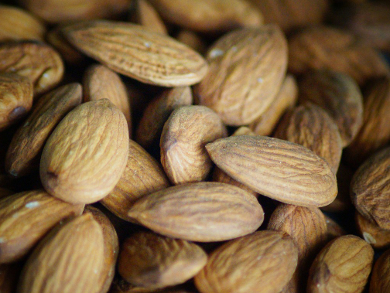Almonds are rich in valuable nutrients: they contain a very high amount of unsaturated fatty acids (90% of total lipid content) and vitamin B, as well as calcium and magnesium. Almonds are either eaten raw or they processed by blanching, roasting or frying.
Arantzazu Valdés, University of Alicante, Spain, and colleagues monitored the effect different processing conditions have on the oxidative stability and quality of almonds. The fatty acid composition over time is monitored by gas-chromatography mass spectrometry (GC-MS) and the oxidative degradation is followed by infrared spectroscopy (ATR-FTIR). The researchers find that raw almonds are more stable against oxidation compared to roasted or fried samples, where the initial high temperature treatments induce oxidation, the formation of secondary oxidation products, and thereby quality deterioration. The volatile profile is analyzed by headspace solid-phase micro-extraction (HS-SPME) GC-MS. Whereas in raw almonds benzaldehydes dominate the profile, roasted almonds mostly showed volatiles from Maillard reactions, such as pyrazines, pyrroles and furans. Fried almonds, however, only show compounds derived from frying oil decomposition.
- Monitoring the oxidative stability and volatiles in blanched, roasted and fried almonds under normal and accelerated storage conditions by DSC, thermogravimetric analysis and ATR-FTIR,
Arantzazu Valdés, Ana Beltrán, Ioannis Karabagias, Anastasia Badeka, Michael G. Kontominas, María Carmen Garrigós,
Eur. J. Lipid Sci. Technol. 2015.
DOI: 10.1002/ejlt.201400384




